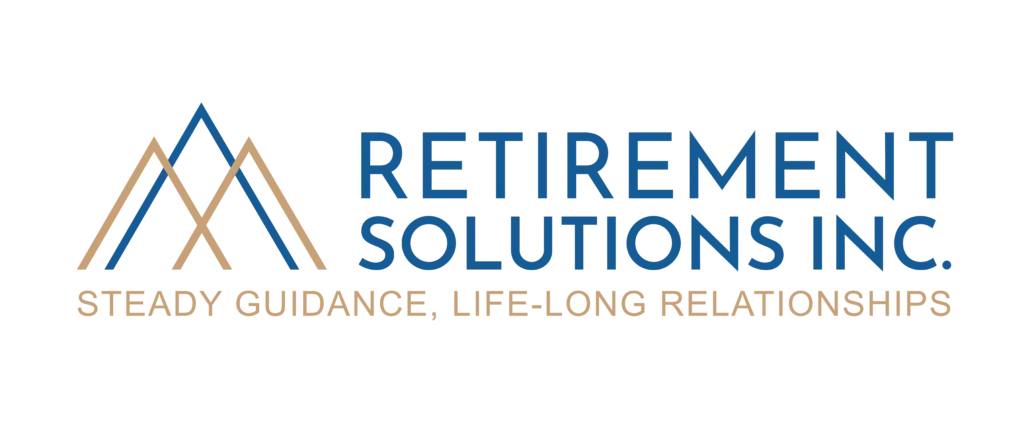MAXIMIZE YOUR RETIREMENT
Expert Guidance from San Diego's Best Succession Planning Team
Navigating Retirement:
The Complex Challenges of Selling Your Manufacturing or Construction Business
There are several challenges that can arise when using the sale of a manufacturing or construction business as a plan to retire, including:
Finding the right buyer: Finding a suitable buyer who can afford to purchase the business at a fair price and who has the necessary experience and skills to run the business can be challenging.
Timing the sale: Knowing when to sell the business can be difficult. Waiting too long to sell can result in a decline in the value of the business, while selling too early may mean missing out on potential growth opportunities.
Valuing the business: Determining the fair market value of a manufacturing or construction business can be complicated. It requires a comprehensive analysis of the business's financial statements, assets, liabilities, and market conditions.
Managing taxes and fees: Selling a business can trigger various taxes and fees, including capital gains taxes, income taxes, and transaction fees. Managing these costs can be complex and requires careful planning.
Creating a retirement income stream: After the sale of the business, retirees must create a sustainable income stream to fund their retirement. This can be challenging, especially if they have not planned ahead and do not have other sources of retirement income.
Overall, selling a manufacturing or construction business can be a complex process, and retirees must navigate a range of challenges to secure a successful retirement.
Transform Your Business Sale into a Strategic Retirement Plan
Work with Our Financial Planners to Sell Your Business and Plan for the Future
A financial planner who is an expert at helping a business owner use the sale of their business as a vehicle to fund their retirement typically possesses a combination of skills, experience, and knowledge that enables them to provide comprehensive and strategic advice.
Here are a few key factors that can make a financial planner an expert in this area:
Business expertise:
An expert financial planner should have a deep understanding of the business sale process, including business valuation, preparing the business for sale, finding and negotiating with potential buyers, and the tax implications of a sale.
Retirement planning knowledge:
A financial planner should also be well-versed in retirement planning and understand the unique challenges of funding a retirement from the proceeds of a business sale, such as creating a sustainable income stream and managing investment risk.
Experience with complex financial strategies:
The expert planner should have experience with complex financial strategies, such as tax planning, estate planning, and asset protection, to help ensure that the business owner's retirement plan is comprehensive and effective.
Communication skills:
A skilled financial planner should be able to communicate complex financial concepts in an accessible way, listen actively to the business owner's goals and concerns, and work collaboratively with other professionals, such as lawyers and accountants, to ensure a coordinated approach to the sale and retirement planning process.
Overall, a financial planner who is an expert in helping business owners use the sale of their business as a vehicle to fund their retirement should possess a unique combination of skills, knowledge, and experience, and be able to provide personalized and strategic advice to help business owners achieve their retirement goals.
From Sale to Retirement
A Comprehensive Guide
Planning for retirement can be a daunting task, but it is a critical step towards achieving financial security and peace of mind in your golden years. The good news is that it's never too early or too late to start planning. With a few key steps, you can craft an ideal retirement that meets your unique goals and needs.


3 STEPS TO YOUR DREAM EXIT WITHOUT COMPROMISING YOUR LIFE’S WORK
Would you like help creating your dream exit?
You’ve got that little voice in the back of your mind telling you it’s time for the next adventure.
You’ve put in thousands upon thousands of hours of your blood, sweat, and tears to build your business into something incredible. You’ve carefully crafted your business into what you wanted it to be. It’s been like raising a child. Years later, you’re proud of it because you’ve “raised” it right.
But there’s one BIG problem.
You’re wondering, what’s next? Although you might be experiencing mixed emotions about moving on, breaking free of your work is starting to sound more and more enticing. All the trips you haven’t been able to take and the family time sacrificed to the business are beginning to weigh on you.
Of course, you’ve got concerns about leaving your life’s work behind. Can you make sure that the values you worked so hard to instill don’t get lost in the transition? What about your employees and your clients? While you want to make sure that they’re taken care of, at the same time, you can’t cut yourself loose with nothing to show for it. You expect your business to fund your future.
Just as you planned meticulously for a variety of situations as you built your business, you need to approach your exit in a methodical way. Although it sounds easy, it seems to be stressful, and even painful, for many business owners. In a recent survey, only about one-third of family-owned businesses had a succession plan in place.1 Whether you’re selling to family or not, you need a plan of action to ensure that you make the right decisions and have thought through the consequences.
You may have already been thinking about how to make the transition. Or maybe recent events have changed your perspective on how much time you want to spend on your work. Either way, you’re looking for a win-win strategy that balances your need for financial freedom and your company’s need for new growth and stability.
If you’re dreaming about passing your enterprise on to others and enjoying a new life outside your business, you’ve come to the right place.
This pivotal guide was designed specifically for accomplished business owners like you, who are searching for a way to reap some of the rewards from their life’s work. At the same time, you want to ensure the values, mission, and procedures are in place so your clients and staff aren’t left hanging when you’re gone.
As a successful business owner contemplating your ideal exit, you’re likely asking yourself questions such as:
How much is my business worth?
How do I ensure that my clients and staff will be taken care of?
Am I aware of all the options available to me when it comes to profiting from my business?
What are the consequences, financial and otherwise, of my choices?
Who do I trust to help me plan my exit?
If these questions resonated with you, keep reading…
DEFINE YOUR DREAM EXIT
While there are plenty of resources that provide an overview on business succession planning in general, it’s not as easy to find information that applies specifically to you and your needs, as well as your firm’s requirements. When it comes to the ideal exit, there’s no such thing as “one size fits all.”
When you were building your company, you probably didn’t just throw tactics at the market to see what worked! Otherwise you wouldn’t have been so successful. Instead, you first determined what it was that you wanted to achieve. Then you put together a blueprint to put all the pieces in place, along with a timeline for each phase.
In the beginning, your main goal may have just been to bring in enough income to stay afloat. As your business began to grow, your blueprint changed. You’re now at the point where it needs to change again. Your first step is to decide what that new goal is.
You probably want your existing customers to be well taken care of, whatever that means to you. In addition, you would probably like to reward the workers who’ve been by your side during the difficult times, or keep everyone employed.
Of course, you need to make sure that you and your family are financially taken care of. Maybe you’d like to take some profit off the top in order to pay off debt or put kids through college. On the other hand, maybe you’re finished working and want to spend all your time with friends, family, and hobbies you enjoy.
The way you grew your company was specific to your own values and how you wanted your company to thrive. Now, it’s time for the business to recede into the background, but your strategy still must be customized to your own values and vision.
Key questions to ask about your dream exit:
What does taking care of my clients and staff mean to me?
What do I need to secure my financial freedom?
Are there any steps I need to take before beginning the transition?
Do I have clarity around what I want to achieve with my departure?
Have I discussed my goal with a trusted and knowledgeable professional?
CHOOSE THE RIGHT ESCAPE HATCH
Now that you’ve determined your goals, you can plan your strategy. Your plan must accommodate more than “just” the financials. Maybe you have friends or family who’ve been through a similar transition. However, that doesn’t mean their arrangement will work for you.
You may know someone who passed their business on to their children. If your kids aren’t willing and able to take over your company, that’s not an option for you. Even if you really wish it were.
Fortunately, you have other options. You might have a second-in-command that is poised to take over. Maybe you’re considering selling to your employees. Or you’re willing to find a third-party buyer instead.
Consider how your exit fits into your personal financial plan. If your future rests on your income until you stop working at a certain age, how will you manage if you stop working now? Is there enough value in the company to support your lifestyle?
Another aspect of your strategy to consider is how much of an exit you’re planning. Will you completely close the door behind you? Or would you prefer to leave the door open, which permits you to take out some equity and potentially reduce your responsibilities?
As you probably expect, different approaches result in different tax consequences. Selling a firm means selling all its assets, not just one business entity. Some company components enjoy capital gains treatment upon sale, while others are taxed as ordinary income.2 Depending on how the deal is structured, you may enjoy greater tax savings with one strategy over another.
Relationships are a factor that often complicates planning. Are there dynamics within the family that must be considered? Even if you’re the only one involved in the company, your exit could still stir up some emotions.
Key questions to ask about your escape hatch:
Is there a person or group who’s ready, willing, and able to take over when I leave?
How involved do I want to be in the business moving forward?
Am I aware of the tax consequences of my options?
Have I considered the family or relationship dynamics that could affect my plan?
Is there anything I’m missing that a knowledgeable professional could discuss with me?
DETERMINE WHEN TO POP THE HATCH
It takes some time to do the prep work before you break out of your business, even before you start looking for a buyer or engage in serious conversations. On the other hand, you want to be ready to exit on a (financially) high note.
Developing your strategy and timeline now is critical. Having everything in place makes it more likely that you’ll be able to take advantage of a favorable market. If you own a seasonal business, you probably don’t want to search for a buyer in the offseason when profits are low or nonexistent. Bear in mind that the actual sale of the company (not including all of your prepping) often takes almost a year.3
Another advantage to solidifying your approach early is to avoid giving your competitors an advantage. Otherwise they may swoop in and take clients and/or staff while you’re still figuring out your tactics.
Your timeframe should match your strategy as well. Want to take off in the next couple of years? Avoid strategies that will take you five years to implement.
Key questions to ask about the timing of your escape:
When do I want to stop working full-time at my company?
Does my strategy match my timeline?
When is the best time to leave?
Have I discussed my decision with a knowledgeable professional?
ENVISION AND EXECUTE YOUR EXIT
As a successful business owner, you put key elements in place in a timely fashion so you could leverage any opportunities you found along the way. When it comes to your business, this may be your last campaign. Treat it with the same thoughtfulness you brought to growing your company.
The good news is, it’s entirely possible to retire, partially or fully, from your business and leave it in good hands. At the same time, the value from what you built can provide you with the financial freedom you deserve. No dream exit is the result of sheer luck.
Making the right choices could result in the smooth transition you’re looking for. Not only does your ideal exit positively affect your finances, but your firm and your family relationships, too. That’s why it’s so critical to understand all the possible outcomes of your options.
The sooner you develop your strategy, the better. Once you have it in place, you can take advantage of opportunities that come your way. Otherwise you’re at risk of losing out because you weren’t prepared.
We have the experience and know-how to help you develop your dream exit in a reasonable amount of time. Our solutions are tailored to your specific circumstances. Book your personalized, free Business Escape Planning Session today to start building your “escape hatch” blueprint.
We can help you determine what tools you need, and how to create a step-by-step action list that results in a win-win outcome. You’ll understand the tax and other financial consequences of your choices, so you choose the one that works best for you and your business. We’re professionals that help business owners like you develop positive strategies when it’s time for new ownership at the company they’ve founded.
—
Risk Disclosure: Investing involves risk including the potential loss of principal. No investment strategy can guarantee a profit or protect against loss in periods of declining values. Past performance does not guarantee future results.
Check the background of your financial professional on FINRA’s BrokerCheck.
The content is developed from sources believed to be providing accurate information. The information in this material is not intended as tax or legal advice. Please consult legal or tax professionals for specific information regarding your individual situation. The opinions expressed and material provided are for general information, and should not be considered a solicitation for the purchase or sale of any security.
We take protecting your data and privacy very seriously. Click the following link to learn more from the California Consumer Privacy Act (CCPA)
Securities offered through SagePoint Financial, Inc. (SPF), member FINRA/SIPC. Investment advisory services offered through The AmeriFlex® Group, an Independent Registered Investment Advisor. SPF is separately owned and other entities and/or marketing names, products or services referenced here are independent of SPF. Insurance services are offered through Scott Chelberg as a licensed agent independent of SagePoint Financial. California Department of Insurance License #0694123.
Investment products and services from this representative(s) available only to residents of Arizona (AZ),California (CA),Colorado (CO),Florida (FL),Georgia (GA),Kentucky (KY),Massachusetts (MA),Michigan (MI),Minnesota (MN),North Carolina (NC),Nebraska (NE),New York (NY),Ohio (OH),Oregon (OR),Pennsylvania (PA),South Dakota (SD),Texas (TX),Virginia (VA),Washington (WA).

Contact Us:
Phone: 760-603-0700
5857 Owens Avenue, Suite 110, Carlsbad CA 92008
https://2rsi.com/
chelberg@2rsi.com
Links:
DISCLAIMER:
The content is developed from sources believed to be providing accurate information. The information in this material is not intended as tax or legal advice. Please consult legal or tax professionals for specific information regarding your individual situation. The opinions expressed and material provided are for general information, and should not be considered a solicitation for the purchase or sale of any security.
We take protecting your data and privacy very seriously. Click the following link to learn more from the California Consumer Privacy Act (CCPA) Securities offered through SagePoint Financial, Inc. (SPF), member FINRA /SIPC.
Investment advisory services offered through The AmeriFlex® Group, an Independent Registered Investment Advisor. SPF is separately owned and other entities and/or marketing names, products or services referenced here are independent of SPF.
Insurance services are offered through Scott Chelberg as a licensed agent independent of SagePoint Financial. California Department of Insurance License #0694123.
Investment products and services from this representative(s) available only to residents of Arizona (AZ),California (CA),Colorado (CO),Florida (FL),Georgia (GA),Kentucky (KY),Massachusetts (MA),Michigan (MI),Minnesota (MN),North Carolina (NC),Nebraska (NE),New York (NY),Ohio (OH),Oregon (OR),Pennsylvania (PA),South Dakota (SD),Texas (TX),Virginia (VA),Washington (WA).

The three-step process provides a clear and actionable plan for construction business owners who want to retire.
Owners can take control of their retirement and ensure that they're able to enjoy their golden years.
Financial Security
Peace of Mind
Flexibility and Control
Evaluate your business and assets:
The first step is to take a look at your construction business and determine what it's worth. This will involve taking inventory of your assets, such as equipment, property, and inventory, and evaluating your financial statements. You may also want to consider hiring an accountant or financial advisor to help you with this process.
Plan for succession:
Once you have a clear understanding of your business's value, it's time to start planning for succession. This may involve grooming a family member or key employee to take over the business, or it may mean selling the business outright. If you plan to sell the business, you'll need to identify potential buyers and work with a broker or attorney to draft a sales agreement.
Develop a retirement plan:
Finally, you'll need to develop a plan for your retirement. This may include investing the proceeds from the sale of your business, purchasing an annuity, or setting up a retirement account. You may also want to work with a financial advisor to ensure that you're maximizing your retirement income and minimizing your tax liabilities.
By following these three steps, construction business owners can take control of their retirement
and ensure that they're able to enjoy the fruits of their labor for years to come.
DISCLAIMER:
The content is developed from sources believed to be providing accurate information. The information in this material is not intended as tax or legal advice. Please consult legal or tax professionals for specific information regarding your individual situation. The opinions expressed and material provided are for general information, and should not be considered a solicitation for the purchase or sale of any security.
We take protecting your data and privacy very seriously. Click the following link to learn more from the California Consumer Privacy Act (CCPA) Securities offered through SagePoint Financial, Inc. (SPF), member FINRA /S IPC.
Investment advisory services offered through The AmeriFlex® Group, an Independent Registered Investment Advisor. SPF is separately owned and other entities and/or marketing names, products or services referenced here are independent of SPF.
Insurance services are offered through Scott Chelberg as a licensed agent independent of SagePoint Financial. California Department of Insurance License #0694123.
Investment products and services from this representative(s) available only to residents of Arizona (AZ),California (CA),Colorado (CO),Florida (FL),Georgia (GA),Kentucky (KY),Massachusetts (MA),Michigan (MI),Minnesota (MN),North Carolina (NC),Nebraska (NE),New York (NY),Ohio (OH),Oregon (OR),Pennsylvania (PA),South Dakota (SD),Texas (TX),Virginia (VA),Washington (WA).
